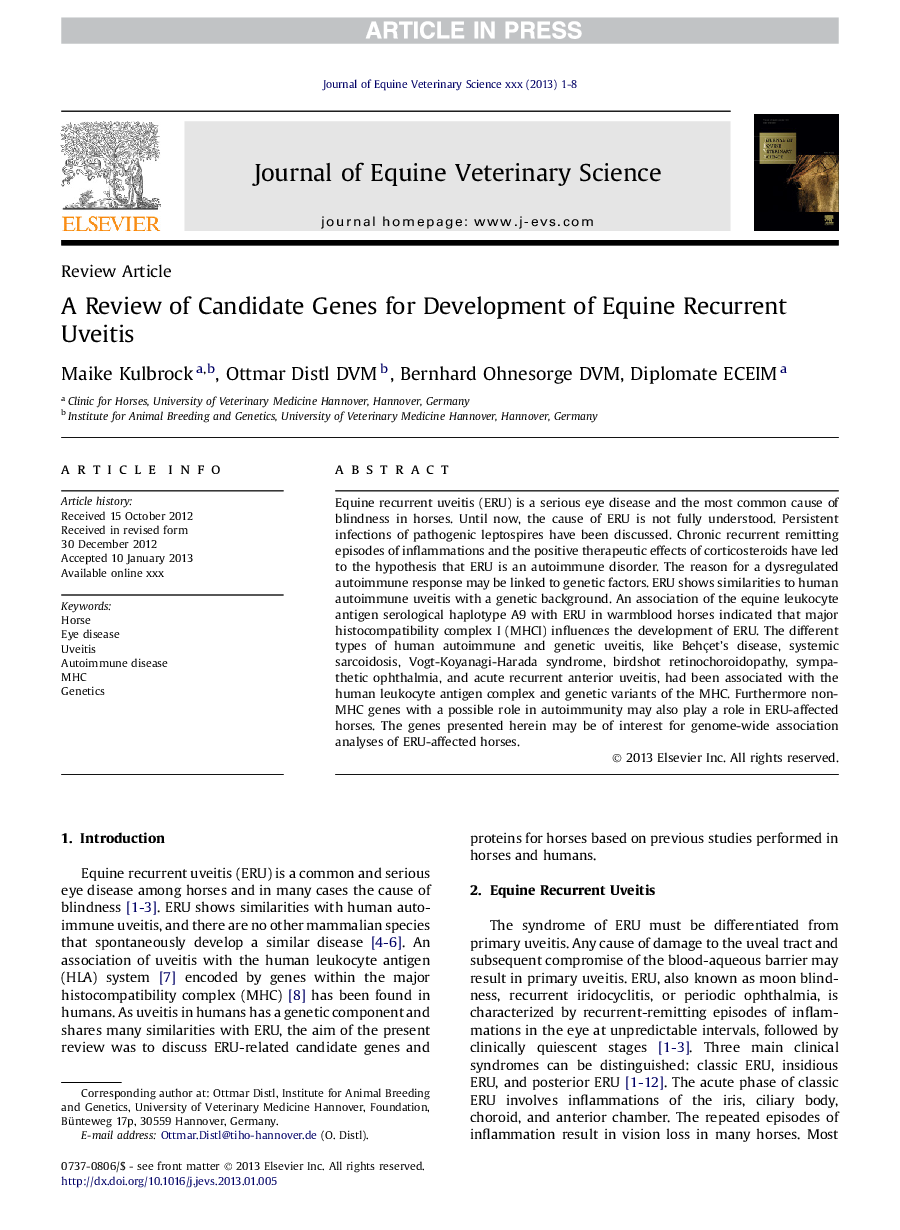| Article ID | Journal | Published Year | Pages | File Type |
|---|---|---|---|---|
| 10961278 | Journal of Equine Veterinary Science | 2013 | 8 Pages |
Abstract
Equine recurrent uveitis (ERU) is a serious eye disease and the most common cause of blindness in horses. Until now, the cause of ERU is not fully understood. Persistent infections of pathogenic leptospires have been discussed. Chronic recurrent remitting episodes of inflammations and the positive therapeutic effects of corticosteroids have led to the hypothesis that ERU is an autoimmune disorder. The reason for a dysregulated autoimmune response may be linked to genetic factors. ERU shows similarities to human autoimmune uveitis with a genetic background. An association of the equine leukocyte antigen serological haplotype A9 with ERU in warmblood horses indicated that major histocompatibility complex I (MHCI) influences the development of ERU. The different types of human autoimmune and genetic uveitis, like Behçet's disease, systemic sarcoidosis, Vogt-Koyanagi-Harada syndrome, birdshot retinochoroidopathy, sympathetic ophthalmia, and acute recurrent anterior uveitis, had been associated with the human leukocyte antigen complex and genetic variants of the MHC. Furthermore non-MHC genes with a possible role in autoimmunity may also play a role in ERU-affected horses. The genes presented herein may be of interest for genome-wide association analyses of ERU-affected horses.
Related Topics
Life Sciences
Agricultural and Biological Sciences
Animal Science and Zoology
Authors
Maike Kulbrock, Ottmar DVM, Bernhard DVM, Diplomate ECEIM,
